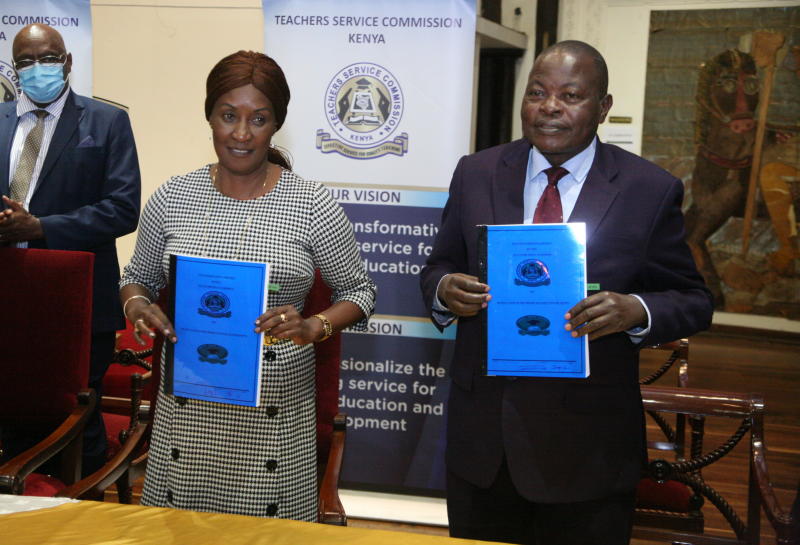×
The Standard e-Paper
Home To Bold Columnists

Teachers Service Commission CEO Nancy Macharia with KUPPET Secretary General Akello Misori during the signing of the 2021 - 2025 CBA. [Wilberforce Okwiri, Standard]
The administration of national examinations could be in jeopardy if a teachers' union makes good its threat.